Eurail Passes are famous as a way to save money while exploring Europe, but they are also confusing and often misunderstood. They are still an amazing money-saving tool for certain types of travelers, and not a wise idea for most others. Before Europe introduced dynamic rail pricing (like airfares, where the price varies depending on when you buy it), a Eurail Pass was an easy way to save money since all tickets had fixed prices that were generally fairly expensive. These days most travelers can save far more money just by buying their train tickets at least a few weeks in advance.
That said, Eurail Passes are still great for longer trips and especially for people who like to make plans as they go. Dynamic rail pricing made advanced tickets much cheaper, but it also made last-minute tickets MUCH more expensive. Below we will discuss Eurail Passes and whether they are a good idea for your trip or not.
Disclosure: This is a reader-supported website and some of the links are affiliate links where a small commission is paid to help keep this site going.
Note: This article was written in 2012 and has been continuously updated since then, so all information is current as of April, 2024.
Eurail 2024 changes: New countries and a mobile version

Aside from that it’s just the normal fact that they have updated the timetables as of December 2023 and have a few promotions going on, but those usually don’t happen over the busy summer season.
Eurail passes are now available in a mobile version
Until very recently, Eurail Passes were only available in paper form and they were quite confusing at first. You’d get a pass with a series of empty boxes on it and you’d need to enter your trip before you’d use your pass each day and then have the first conductor verify it. If you lost your ticket (and this was not uncommon), it was a whole ordeal to attempt to get a replacement.
Again in 2024 Eurail offers a fully mobile version that is delivered instantly to your mobile device with no delivery fee. And if you somehow lose your phone, you can resume using your Pass on your replacement with no extra headache. This is MUCH more convenient in every way and as long as you can keep track of your phone you’ll always have your train pass handy.
If your trip will be 2 weeks or less, a Eurail Pass probably won't be worth it

Eurail Passes are ideal for travelers on longer trips, and especially those who don’t want to plan all of their destinations and dates far in advance. If you have your itinerary pretty much planned out and you don’t require much flexibility, you’ll be far better off just locking in your dates and buying your train tickets as early as you can. Again, they can be surprisingly cheap if you buy 2 to 4 months out.
If you are age 27 or younger, a Eurail Pass is probably worth it

With this in mind, if you are lucky enough to still be 27 or younger, you should seriously think about getting a Eurail Global Pass Youth, partly because the sense of freedom instantly gets more expensive at age 28. The age cutoff was 25 until recently, so this change is a great deal for anyone who will be 26 or 27 at the start of their trip.
You aren’t guaranteed to save money by buying a Youth Eurail Pass, but chances are good that you WILL save money and you’ll definitely save a lot of hassle as well. Especially now that Eurail Passes come in a mobile form, it’s even that much more convenient to just hop aboard any train that is about to leave the station and not worry about buying or even having a ticket. Especially for young people, it can be really fun and exhilarating to literally just walk into a train station with your backpack and look at the departure board and then decide where to go at that moment.
If you are age 60 or over, a Eurail Pass could also be great value
Another fairly recent change is that anyone who is 60 years or older at the start of the use of a Eurail Pass now gets 10% off the normal adult fare. That new discount is going to make this a great value for many travelers who might have been on the fence about buying a full-price pass before.
>>>Check prices on Eurail Passes
If you are planning on traveling in 1st Class anyway, a Eurail Pass is probably worth it
Most 2nd Class trains provide similar comfort and legroom to Business Class airline seats, or at least close enough, so for most people it’s not worth the added expense for 1st Class. However, if you are rich or elderly or fear contact with strangers, a 1st Class Eurail Pass is probably worth it no matter what.
Not only do you get much more comfort and legroom in 1st Class, with only 3 seats across instead of 4, but there is another advantage to 1st Class on European trains. Since it’s mostly business travelers and wealthy people traveling in 1st Class, the carriages are almost always mostly empty except in the mornings and late afternoons between large cities. In 2nd Class the only available seats might be two seats in an 8-seat cabin with all the other seats taken up by a loud family or a group of rowdy friends. In 1st Class you are all but guaranteed a peaceful ride, and usually plenty of empty seats from which to choose.
A hidden Eurail Pass benefit: Making extra stops on travel days for free

Brussels in particular is one I recommend a short stop in because the small historic center around what they called the Grand Place is amazing and gorgeous, while the rest of the city is rather boring by European standards. With a Eurail Pass you can jump off the train in Brussels and explore the city center for a few hours (luggage storage is cheap and easy) and maybe have lunch, and then hop on a later train to complete your journey to Amsterdam. There are opportunities like this on many if not most trips between larger cities, and if you buy the point-to-point tickets you have to stay on the train you booked.
Another example is the high-speed train between Barcelona and Madrid, which takes about 2.5 to 3 hours in each direction. There are some interesting cities in between, but in this case you could take a morning train from Barcelona to Madrid and then check into your accommodation, and then hop on another train from Madrid to Toledo, which takes about 30 minutes and costs €14 each way. Toledo is a historic and fascinating town, but it’s also pretty small and you can explore the main sights in an afternoon. With a Flexi Eurail Pass where you buy a certain number of travel days, you can save more money by adding on these sorts of nearby stops on travel days.
If you'll be touring major cities within ONE country, a single-country pass might be perfect, and Second Class passes are available for all ages
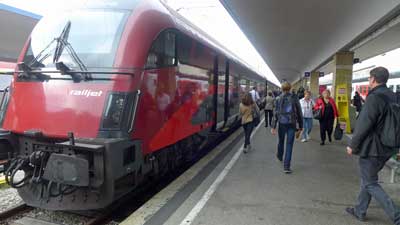
Single-country passes are still available and they MIGHT be good value for you, but it depends on which country and how much traveling you’ll be doing. If you plan on going all over a larger country such as Germany, France, or Spain, and especially if you like to make plans as you go, a Single-country pass for one of those might be your best deal. On the other hand, smaller countries (such as the Netherlands) or countries where train tickets are already fairly cheap (such as Italy) might be harder to get value out of. Long story short, for single-country passes you really need to check fares of the places you plan on going and see how they add up compared to the pass.
>>>Check prices for Single Country Passes
Eurostar (between London and Paris or Brussels or Amsterdam) tickets are now included for Eurail Pass holders for a €30 reservation fee
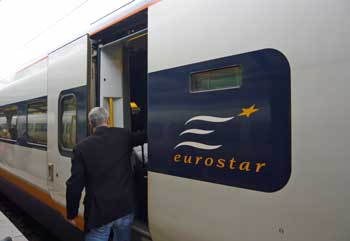
Our recent tests show that Eurostar fares one-way from London to Paris can be as low as €49 if you book about 3 months out, or as expensive as €214 for the same seat if you wait until the day of travel to buy. Round-trip/return tickets can be even cheaper if there is a promotion running.
>>>Check Eurostar prices
If you are on a really low budget, a Eurail Pass isn't a good idea
Here’s the thing. As we’ll discuss below, there are many potential benefits to Eurail Passes, and they will often save you money, but they do cost a lot and they only really save you money when traveling in the more expensive countries.
So let’s say you have a flight to Rome and then US$2,000 to last you a month after you arrive. Buying a Eurail Pass before you go would help you see a lot in that month, but you’d practically need to sleep in parks for your funds to last the whole time. You’d be better off moving slowly in the southern countries, or just in Italy itself, as a way to have the best holiday on your budget. You might also be tempted to use a Eurail Pass mostly on night trains so you can save the cost of a hotel or hostel, but those aren’t ideal for most of us.
The cheapest way to get around Europe by rail is to buy all train tickets online at least a couple months in advance. The fares are low, but they are non-refundable and non-changeable. See how far in advance you should buy train tickets to get those attractive fares.
If more than a little of your travel will be in eastern Europe, a Eurail Pass isn't a good idea
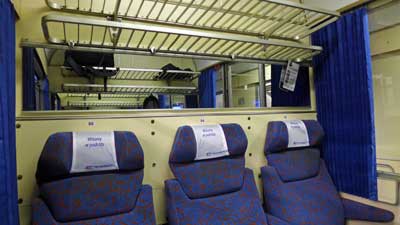
The good news is that the trains operating in this region, and the buses that operate alongside and/or where trains aren’t running, are quite cheap. So if any significant part of your trip will be into this region, a rail pass doesn’t make sense.
Basic types of Eurail Passes
Long gone are the days of the simple options, replaced by specialized passes that are meant to appeal to different styles. It should be pretty easy to figure out which is best for you, and then keep going down the page to decide if it’s worth it at all.
Eurail Global Pass – 4,5, or 7 days within 1 month or 10 days within 2 months
Until recently the minimum number of travel days with 10 days within 2 months, but now you can buy as few as 4 days within 1 month for about €200 to €250 (for first class). This can actually be an interesting strategy if you are planning many shorter and cheaper trips (like within Italy or Eastern Europe), and also 4 or 5 longer trips such as Berlin to Amsterdam. This way you can buy only 4 or 5 travel days and only use them for your most expensive travel days, and just pay as you go or buy cheap advance tickets for your other journeys.
Eurail Global Pass – 15 to 90 consecutive days
This variation allows for unlimited travel on the system for between 15 and 90 total days. They are really only a good idea for people who are certain they are going to travel very often, with much of it being in the north of Europe. The problem with them is that if you really try to get your money’s worth, you will probably ruin your trip by spending too much time on trains in general. On the other hand, if you will be in Europe for 2 or 3 months and plan on traveling around a lot, you can get a LOT of use out of a longer pass. The 3-month pass is around €900 so it’s literally about €10 per day. Imagine going back and forth between Berlin and Munich or Barcelona and Madrid for €10 per day!
One Country Pass
Obviously these are for travel within one country only. Again, they can be great deals if you plan on extensively moving around one particular country.
Where to buy your Eurail Pass
Eurail Passes are cheapest and easiest to buy online, primarily from two main sources which offer all the same products at the exact same prices:
This is a reliable company based in the Netherlands but with fulfillment offices in the US and Ireland. Price of Travel is a partner with this company, and if you use the links of this site we earn a small commission to help keep this site online. Eurail.com is usually cheaper than RailEurope (discussed below) by the way.
They were founded in the 1930s and are based in New York, but owned primarily by the French and Swiss rail companies. They offer free shipping (2 to 3 business days) on all orders of US$399 or more, although now that a mobile version is available, this is meaningless. Price of Travel is a partner with this company, and if you use the links of this site we earn a small commission to help keep this site online.
Reservations on European trains for rail pass holders
For most of the fastest trains between major cities you’ll need to reserve a seat even with a rail pass. It can usually be done just before you leave and the cost is usually around €5. Here’s a full list of which European trains require reservations and which don’t.
Reservations are required on all intercity (longer distance) trains in or involving France, Spain, Switzerland, and Italy. For most trains in Germany, Austria, Netherlands, Belgium, and most of eastern Europe, you can usually find trains that don’t require seat reservations. Often, if you don’t leave until after 9:30am or so, you can ride on any train with no seat reservation, but you have to research each leg to be sure.
How to determine which trains require seat reservations, and also get schedules
You can click on the link just above this section for a list of countries and their seat-reservation policies, but in some cases it’s actually a bit more complicated than that. For example, you can generally ride without a seat reservation on fast ICE (Inter City Express) trains in Germany if you depart after 09:30 in the morning. They do this to free up seats for business travelers who pay full fare, and they don’t mind filling up seats with rail pass holders on trains leaving a bit later.
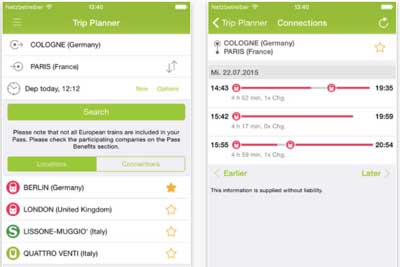
Night trains in Europe are making a comeback
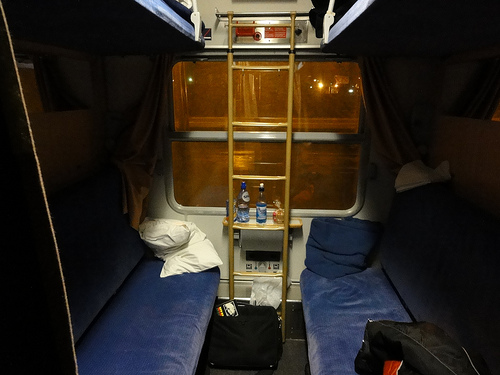
Fast forward to 2024 and night trains are not only expanding service, but they are very trendy. Some of it is nostalgia for the older way of getting around, but most of it is for environmental purposes combined with European hatred for the “low cost airline” experience with RyanAir and Easy Jet etc.
Personally I’m still not a fan of night trains because I find it difficult to sleep on them since they often get decoupled at interim stations in the middle of the night and then coupled onto other trains coming from other places, and I can’t sleep through any of that. But still, they are worth looking into and they are fun to try at least once.
A bit of warning that they tend not to be cheap and even if you have a Eurail Pass you’ll almost certainly want to book a sleeping cabin with a bunk or couchette, and that will come at an extra fee. On the other hand, if you are the sort of person who can sleep sitting upright in a normal seat, then that won’t cost any extra on most overnight trains.
Factors to consider when thinking about any Eurail Pass
Assuming you know which Eurail Saver Pass option is the best one for your type of trip by now, we’ll go over the main factors that should help you decide whether it’s the best idea for you.
Eurail Passes are best for standard ‘medium length’ journeys
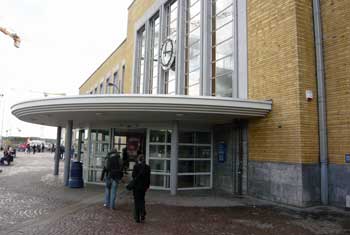
However, if you are determined to travel between Rome and Paris, it’s about a 14-hour journey that will almost certainly be overnight. In this case, a cheap plane ticket is probably better, although taking shorter hops on the train is even better, so spend a day or two in Milan or Lyon on the way instead.
And of course, if you prefer to stop in various small towns between the big ones, then a Eurail Pass won’t pay off, except for the traditional kind for unlimited travel in a given period.
Eurail Passes are better value in northern Europe, France, and Spain, and poor value in Italy
Once you do a bit of research you’ll quickly learn that train tickets (and almost everything else) are much more expensive in Germany, Netherlands, Denmark, Sweden, Norway, and Finland than they are in Greece, Italy, Portugal, and Spain. With this in mind, the regional passes can make sense if you are spending time in the south, but the Global Passes almost certainly won’t. Train tickets in Spain used to be fairly cheap, but in recent years they’ve added new high-speed trains between the major cities, and these are quite expensive.
Unlike most other countries, Italy really subsidizes its train tickets so they are quite reasonable even on travel day, and very cheap if you buy a month or more in advance. For example, you can go between Rome and Florence for around €49 if you buy on travel day, and as little as €19 if you buy well in advance. In most other countries, fares are double or triple that much for similar rides.
So consider your planned itinerary. If more than half of it is in the Mediterranean countries then look into a Regional Pass or just buy tickets as you go, because they tend to be pretty cheap. But if you are planning on spending at least half your time in Paris and places to the north of it, then a Eurail Pass is probably a money saver because those tickets are expensive.
Trains are almost always better than planes
Flying sucks, even in Europe
Until you’ve experienced the joy of traveling around Europe by train you might be tempted to “maximize” your time by flying low-cost airlines between each city. This would be a mistake. In order to get truly cheap airfares you have to purchase long in advance, buying non-refundable tickets. You might also have to commit to flights in the very early morning or in the late evening, because cheap tickets on convenient flights sell out quickly.
And again, most European airports are around an hour outside of the city. They are often on the main train lines, which helps, but still you have to deal with the madness of security and also try to get there at least two hours early. From one city center to any other city center it’s about 5 hours minimum, even if they are close, and those are pretty miserable hours.
Train travel is a positive experience

Not only are all the seats comfortable on trains, but you also have an interesting view most of the time. Better still, trains deposit you in the heart of every city, which is usually the neighborhood with the cheapest hotels and food. It’s a wonderful feeling to step off a relaxing train ride, buy a hot dog or sandwich at a local shop, and then be in your hotel room only about 10 minutes later.
Eurail Passes are better than train tickets alone
As someone who enjoys the process of crunching numbers and looking for value, I have to also mention that I’d buy a Eurail Pass even if it seemed like it would cost a bit more than the individual tickets. With a pass you get an extra element of freedom that is worth a lot more than you might expect until you’ve used one.
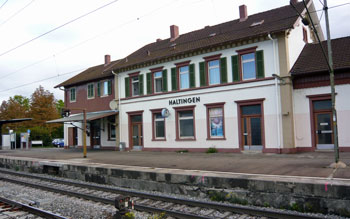
Let’s say you are heading from Amsterdam to Hamburg tomorrow morning. The 09:00 train you planned for might seem a bit ambitious after a long night out, so you can instead opt for the 10:00 or 11:00 train. As long as you walk into Centraal Station 10 or so minutes before departure, you are on. If you are flying you can’t change your ticket, and if you are buying train tickets as you go you have to be in line at the international desk at the train station at least 30 minutes early, and even then you might miss it if they are busy.
Freedom and getting to feel like a big shot
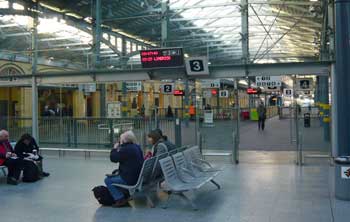
Let’s say you are staying at a hostel in Brussels, and two groups of new friends suggest that you go along with them to their next stops. One group is going to Bruges, which is a short and cheap journey, so you can join them by buying individual tickets (unless you have the unlimited pass, making it free). Then you restart your trip from Bruges, on to your next destination. The other group is headed to Berlin on a night train, which is long and expensive, but with a Eurail Pass you don’t even have to think about the cost. On you go, just like a rich person.
Buying a Eurail Pass is great for those who might run out of money
We all know people who keep meticulous track of every penny they spend, and who are always putting money away for a rainy day. And we all know people who can take a US$100 “entertainment fund” and burn through almost all of it in just a few hours. For the first type of person, a Eurail Pass can help you keep track of expenses, but it’s really the second type of person these are best for.
It’s sad to hear about people who have big plans to see their dream destinations, but they run out of money for transportation halfway into the trip, so they have to just stay put until they fly home. It happens. Locking in your major transportation costs before you leave home, and probably saving money in the process, is a wise move for anyone who isn’t as disciplined as they’d like with their money.
>>>Check prices on Eurail Passes
Bottom line: If you want to keep travel costs down, your choices will usually be a Eurail Pass or buying tickets at least a month or more early
In the last few years, almost every long-distance train ride in Europe has switched to a pricing system similar to low-cost airlines. In other words, tickets go on sale 2 to 6 months ahead of time at very low prices, and they keep getting more expensive as the train fills up and the date approaches. For most trips where a rail pass is possible, this is how things stack up:
Cheapest possible way: Buy advanced (non-refundable, non-changeable) train tickets at least 30 days in advance
Next cheapest way: Buy a Eurail Pass and make seat reservations as you go, usually only a day or less in advance.
Most expensive way: Buy train tickets as you go, or less than a week in advance.
Thinking about it this way should make the choice a bit easier. If you are the type who likes to plan each day and travel segment long before you even leave home, then buy tickets online for the best prices. This can be the best strategy for most shorter trips (10 days or less) because you simply don’t have enough time to change many things as you go anyway.
Buying a Eurail Pass won’t be quite as cheap, but you are buying a LOT of flexibility with the extra money. If you dream of making up your plans as you go, or even making up your plans just a few days in advance, this is almost always your best bet.
But if you wait too long, and just show up looking to buy train tickets as you go, they are going to cost a fortune. As recently as only a few years ago all seats would be the same price on many rail systems, so you could always just wing it. When each country computerized its rail systems so they can sell advanced tickets cheaper, they also had to keep track of seat reservations, so the whole pricing structure had changed to favor advanced ticket buyers and rail pass holders over those who’d prefer to just hop on any train as it is leaving the station.
Have a rail pass or itinerary question of your own?
It wasn’t planned but scores of people began asking me rail pass and itinerary questions at the bottom of this article and a few others. I’m happy to keep answering them and now I’m trying to organize them better as well so they are easier for other people to find.
If you have a question about specific types of European rail passes, please ask it in the comments below.
But if you have a question more about a European itinerary or other non-rail-pass questions, please click over to the European itineraries Q & A article and ask in the comments of that one.

Hi Roger, thanks for the information. I have decided a global pass is best for my travel plans. I live in Canada and am looking to purchase the global pass from Raileurope but I have read horrible reviews on this company…particularly related to non global/select pass train ticket purchases. Any feedback on if I can have confidence the global pass would arrive by mail within the company’s suggested timeline of 2-3 business days from date of purchase? I leave in about 2 months and have not purchased the pass yet. Thanks for any feedback.
John,
RailEurope is owned by the France and Swiss rail companies and they’ve been around forever. My guess is that it’s one of those situations where 10,000 happy customers never make a comment, but on the 10 customers where something went wrong they post all over the internet. I’ve used them before and everything has gone just fine. So I can’t guarantee anything, but especially if you order fairly soon you should have nothing to worry about. Best of luck. -Roger
Dear Roger,
My name is GREEN. I am from Cambodia. I guess you would never heard of Cambodian traveling before as we are very poor finiacially and have lots of social and family pressure regarding traveling. But I wanna break that norm. I really enjoy reading your knowledgeable, descriptive and informative experience. You are a great role model.
In this coming weeks, My girlfriend and I will be traveling around Europe from 18 February 2018 to 12 April 2018. Here is our itinerary:
Feb 18 Depart from Paris to London
Feb 18-21 Touring around UK
Feb 22 Depart UK to Brussels
Feb 23 Tour around Brussels
Feb 24 Depart from Brussels to Amsterdam
Feb 24-25 Touring around Amsterdam
Feb 26 Depart from Amsterdam to Vejle (Denmark)
Feb 26-28 Tour around Vejle and nearby cities in Denmark
Mar 1 Depart to Berlin
Mar 1-3 Tour around Berlin
Mar 4 Depart from Berlin to Prague
Mar 4-5 Touring Prague
Mar 6 Depart from Prague to Bratislava
Mar 7 Stay in Bratislava
Mar 8 Depart from Bratislava to Budapest
Mar 8-9 Tour Budapest
Mar 10 Depart from Budapest to Bucarest
Mar 11-12 Tour Bucaest
Mar 13 Depart from Bucarest to Sofia
Mar 14 Tour Sofia
Mar 15 Depart from Sofia to Skopje
Mar 16-17 Tour Skopje
Mar 18 Depart Skopje to Thessaloniki
Mar 19 Tour Thessaloniki
Mar 20 Depart from Thessaloniki to Athens
Mar 21-22 Tour Athens
Mar 23 Depart from Athens to Pogradec (Albania)
Mar 24 Tour Pogradec
Mar 25 Depart from Pogradec to Tirana
Mar 26 Tour Tirana
Mar 27 Depart from Tirana to Podgorica (Montenegro)
Mar 28 Tour Podgorica
Mar 29 Depart from Podgorica to Sarajevo (Bosnia and H.)
Mar 30 Tour Sarajevo
Mar 31 Depart from Sarajevo to Zegreb
Apr 01 Tour Zegreb
Apr 02 Depart from Zegreb to Ljubljana
Apr 03 Tour Slovenia
Apr 04 Depart from Ljubljana to Venice
Apr 05 Tour Venice
Apr 06 Depart from Venice to Innsbruck
Apr 07 Depart from Innsbruck to Solothurn (Swiss)
Apr 08 Tour Solothurn and Zurich
Apr 09 Depart from Solothurn to Geneva
Apr 10 Tour Geneva
Apr 11 Depart from Geneva to Dijon (France)
Apr 12 Depart from Dijion to Paris
Apr 12 Fly from Paris to Cambodia.
COULD YOU PLEASE RECOMMEND HOW WE SHOULD PLAN OUR TRANSPORTATION?
IS 15 DAYS/2months of Eurail Pass worth it?
Thank you so much and I look forward to hearing from you as I wanna buy the Eurail pass as soon as in a few days.
Sincerely,
Green
-n-
Green,
It’s good to hear from you. Actually I’ve been to almost every tourist country in Asia, and I’ve spent two weeks in Phnom Penh and two weeks in Siem Reap, so I’m a fan of Cambodia. Your itinerary looks amazing. I’m guessing that this is your first trip to Europe because you’ve got almost every major city on your list, except for perhaps Italy. First off I’m going to repeat what I say so often in that I strongly recommend planning 3 nights in just about every city you visit. Going from one city to another almost always takes at least 5 or 6 hours at least from the time you leave one hotel or hostel until you are checked into your next one, and often it’s more like 8 hours. Those hours are almost always in the middle of the day, so it’s hard to do much sightseeing on the day you arrive or the day you leave. If you change cities every other day it literally means spending every other day on trains and train stations or buses etc. But if you plan on 3 nights in each city it leaves two full sightseeing days in each place, which is enough to at least see the highlights.
Another thing I need to mention is that you’ve got about 30 places listed that you want to see in about 8 weeks, and that is a lot. More importantly, you’ve got quite a few second or third-tier cities on your list, and I wouldn’t recommend visiting any of them on such a short trip. Some experienced travelers like to see “off the beaten path” cities that don’t get much tourism, but often they don’t get many tourists because they are dull compared to the more famous ones. On your list I would say Bratislava, Bucharest, Sofia, Thessaloniki, Zagreb, Innsbruck, and Zurich that stand out, although there are a few others that I’m not so familiar with. I’ve been to almost all of those and honestly they don’t really have much to see, at least compared to the more famous places. I’ve been to Sofia a few times, partly because I was living in nearby Serbia for a while, and it’s a very pleasant city and wonderfully cheap, but not memorable at all. So I recommend asking yourself about each stop on your list if there are things you are specifically going there to see, or if they are your list because they are large cities on your route?
For the most part you want to get around on trains, but in eastern and some southern countries such as Czechia, Hungary, Croatia, and anywhere else in the former Yugoslavia, the bus service is far better and also cheaper. Depending on your final route you might not spend much on trains if you buy most of your tickets in advance. I’m happy to help with more specific advice if you need it as you are getting your plan together. -Roger
Dear Roger
Thank you so much for your most useful reply. I have taken your advice and have purchased some air tickets and I’m looking at some train tickets for Spain and Portugal now.
I read from ‘Let’s Go Europe’ guide book, it says they don’t recommend night buses, because the drivers are often exhausted and some roads can be narrow and hard to navigate at night.
I’m trying to stick with train as much as I could for the convenience of being in central of city/town. Though could take a lot longer:(.
What bus company would you recommend for Spain and Portugal?
Thank you in advance
Clarence
Clarence,
I don’t remember any specific bus companies in Spain and Portugal, and they all seemed fairly similar to me. I remember when I wanted to go from, say, Seville to Granada, that there were cheap buses leaving every hour or so. As for the night buses, it doesn’t surprise me to hear that there have been a couple accidents over the years, but I don’t think it’s common. And if passengers were hurt on any kind of regular basis, there would be a loud uproar from consumers and those companies would be shut down. Europe has pretty tight regulations on transportation, unlike, say, Nepal, where bus crashes are concerningly common. Still, I can never sleep on overnight buses and most aren’t nearly comfortable enough for most people to sleep well. If one bus company seemed to be quite a bit cheaper than the others, I would be concerned about their safety record.
My advice would be to Google two towns that you will want to go between, such as “getting from Seville to Malaga” and you should be able to see the bus and train options in the top few search results. Spain’s high-speed train service keeps getting better, and those trains can be fairly cheap if you book at least a few weeks in advance. Hopefully you can mostly stick to those. Let me know if you have any other questions. -Roger
Dear Roger
Most interesting and helpful read on your replies above.
My first trip from New Zealand to Netherlands and Southern Europe.I love architecture, arts, culture, food….
My draft itinerary. Start from Amsterdam to Rotterdam and Brussels areas travelling with a friend(between 19 April to 30 April)
Labor day in Rome(1 May) then Florence, Pisa
Venice, Barcelona, Madrid, Bilbao, Lisbon, Porto, Munich 31 May to 4 Jun, then back to Amsterdam until 6 Jun.
1. Would you recommend to buy Eurail Global 1 or 2 continuous Months Pass? Price differences about Euro300.
2. Would I be able to use my Eurail pass to travel between all the mentioned cities/countries?
3. Does Eurail pass include rail, ferry and buses?
4. My schedule is flexible, so I’m very happy to listen to your recommendation.
Thank you in advance
Clarence,
Actually, I think you might be best off buying train tickets individually rather than a rail pass. The fares on Amsterdam to Rotterdam to Brussels are pretty low, and even lower if you buy at least a few weeks in advance. The same is true of those train rides within Italy as well as the ones within Spain and Portugal. The rides between countries might be a bit expensive in some cases, but for those cases flying might be a better option anyway. As you’ve noticed, rail passes are pretty expensive on a per-day basis and so they are usually only good value for people going long distances in a short time, and for those who REALLY want to make their plans as they go. In your case you could save money by buying any of your train tickets as early as possible, and even most of them won’t be too expensive if you just buy on travel day or the day before.
Eurail passes include almost all train rides but almost no buses. Eurail passes include some ferries, especially those such as Germany to Denmark where a ferry is required as part of a train trip. But in most of Europe you can only get a discount on a ferry ride, or nothing at all.
Having a flexible schedule can help save money, but if you are pretty sure you’ll want to go to most or all of those cities, it’s probably better to figure out a general schedule in advance and stick to it. My strong recommendation is to spend 3 nights in pretty much any city you visit. So if you have 10 days and you want to visit 3 cities in that time, it’s probably better to spend 4 days in one of them and 3 days in the others, and buy your train tickets (and book your hotels) as early as possible. You can save a lot of money doing that, and you’ll end up being happy with your choices in almost all cases. By the way, it’s probably best to visit Pisa as a day trip from Florence, as it’s only an hour away by train and it can easily be done in 4 or 5 total hours. Pisa is pretty dull aside from the Leaning Tower and cathedral next to it. And Venice is small enough to visit in about 24 hours, and so crowded that staying longer can be frustrating.
Trains are your best option in Italy and most of Europe, but in Spain you can often find buses to be much cheaper and almost as fast between certain cities. I’m happy to offer other advice if you need it. Let me know if you have any other questions. -Roger
Hi Roger,
Your website is very helpful for us. Thanks for sharing your experience for travelers. May I ask you a question? We (actually 2 seniors women) would like to go to the capitals of Norway, Sweden, Finland and Denmark from Paris within 45 days. At Helsinki, we would go to St Petersburg with 3 day free visa. Then we will go to Berlin or Hamburg and heading back to Paris. I am confused what means of transportation is the better options. By plane or by train? and which one is cheaper? We are retirees from Viet Nam, we must tighten our budgets for further trips. Thank you very much!
Kim,
I’m happy that this information is helpful. Those capitals are not really close together, but at least the trains between them go pretty fast. I would fly into Copenhagen and then take the train to Stockholm in a bit over 5 hours. From Stockholm to Oslo the train is also a bit over 5 hours. You could then fly from Oslo to Helsinki, and then take the train from Helsinki to St. Petersburg in about 5.5 hours. If you buy the train tickets at least a month or so in advance you should probably get cheap fares. Those countries all have what they call Minipris or Supersaver tickets if you buy far enough in advance. Trains are far more enjoyable than flying between those cities, and even if you fly it takes 5 hours to get from the city center in one city to the city center in another, so I’d take the train even if it were a bit more expensive. Those flights will also be cheapest if you buy them as far in advance as possible.
I spent 4 months in Vietnam myself and I love the country. These are all very expensive cities so they aren’t ideal for people on tight budgets. And to be honest, Bergen is more interesting than Oslo, although Bergen is even more remote. Let me know if you have any other questions. -Roger
Hi Roger,
I am travelling to Italy, Greece and Turkey. I am only catching the train in Italy from Rome – Florence – Venice, and then a ferry from Venice to Patras. I will be catching mostly buses throughout Turkey. From my understanding, most of the ferries throughout the Greek Islands are not covered by a rail pass. I can see that the Eurail pass for me for three neighbouring countries will be around $500 AUD. Do you think I am better off just buying single train tickets in this case? Or is it still worth it to get a 5 day pass?
Christel,
Fortunately for you, the train tickets between Rome, Florence, and Venice are fairly cheap even if you buy on travel day, and they are much cheaper if you buy at least a few weeks in advance. Rail passes can be very good value on longer trips, especially in northern Europe, where a person wants to travel on a whim. But for your case it will be MUCH cheaper just to buy the individual tickets in advance, and the same goes for the Greek ferries. The bus tickets in Turkey are also quite cheap and they used to be fixed price, but some might now have dynamic pricing so buying those in advance might also be wise. Have a great trip and let me know if you have any other questions. -Roger
Hi Roger,
Me and my girlfriend (both under 25) are planning on a ~20-day trip to Europe(May to June), starts from UK–>Netherland–>Germany–>Switzerland–>Italy–>France–>London (Return flight).
Do you suggest me on getting a select eurail pass for 5days, it would mainly be used for the long-hour train between these countries, however I am still wondering if this is worth it given the fact that extra fee (mandatory reservation fee) is required even with the expensive pass. My question is whether eurail pass is still worth it in this case. It would be fantastic if you have any recommendation on other transportation passes.
Hope my English isn’t too trash to understand, look forward to your reply.
Thanks and best regards,
Geralt
Geralt,
Your English is great and I didn’t know you weren’t a native speaker until you mentioned it. On a 20-day trip like this you are going to be on a pretty tight schedule and it will be cheapest if you buy your train tickets at least a month or more in advance. Rail passes are wonderful for longer trips where you want to be able to make plans on a whim without paying a fortune for trains. But for shorter trips like this with fixed schedules, you can actually get cheap train tickets if you book far enough in advance. Also, on a 20-day trip I would highly recommend planning on 6 or maybe 7 total stops, which would mean 5 or maybe 6 journeys between them.
You can take the Eurostar train from London to Amsterdam, but rail passes don’t apply, and it’s often cheaper to fly. Even if you do take the train, it’s not a scenic journey at all, and it takes about as long as flying. And the trains in Netherlands, Germany, and Switzerland don’t require seat reservations as long as you travel after 9:30am in most cases, but still if you buy early those tickets will be cheaper than a day with a 5-day rail pass.
Switzerland can be tricky and I can give you more advice if you let me know what you have in mind, but if you want to go from, say, Munich to Interlaken and then Interlaken to Venice, buying early will be fairly cheap. Have a look at my article about where to go in Switzerland for more details.
The trains within Italy are heavily subsidized and therefore always fairly cheap, and even cheaper if you buy in advance. From anywhere in Italy to Paris it’s actually better to fly because the trains are slow and expensive. And from Paris to London you’ll take the Eurostar train, which again, isn’t part of the rail pass schemes. I’m happy to help with more information if you need it. -Roger
Hi Roger,
I’ve been browsing your website for awhile now, thank you for all of the helpful tips! This summer I will be traveling for a little over a month from mid May through June. I plan on visiting most of Switzerland, southern France, a few cities in Austria, Budapest, Prague, Split and Dubrovnik. I was originally thinking about purchasing the one month continuous Eurail pass because I liked the flexibility of it and I am also not sure how long I plan to spend in each city/country.
Does it look like I have enough time for this itinerary? In this case do you think that a one month continuous pass would be the best choice? Or would it be a better option to get maybe the 7 days in 1 month or 10 days in 2 months pass and buy train tickets within the country I am traveling? Again, I liked the flexibility of the continuous pass and not having to reserve a seat weeks in advance.
Best, Anna
Anna,
It would actually help to see a more complete list of places you are planning on going. I’m not even sure that any rail pass would save you money, although I also understand your desire to just be able to go on a whim, and that is a huge benefit. One challenge is that the Global Eurail Pass is pretty expensive on a per-day or per-travel-day basis, so it’s really only the more expensive trips that it saves money on.
More specifically, trips within Austria will be pretty cheap because it’s a small country. Even Vienna to Salzburg isn’t very expensive, and if you go to smaller tourist towns on suburban rail lines it’ll be even cheaper. Also, the trains going in and out of Prague and Budapest are fairly cheap even at the last minute, although they are also pretty slow trains in some cases to the point that buses are sometimes a faster (and cheaper) option. And the trains to make it to Dubrovnik, and the trains going to Split are quite slow, so I recommend buses in Croatia for most trips. Those buses in places with slow trains tend to be fairly comfortable, usually with free wi-fi, and far more daily departures to go along with lower prices.
If you are spending more than a couple days in Switzerland it would actually be cheaper to buy a Half Fare Card for 30 days for US$120. Trains and especially cable cars and tourist trains in Switzerland are very expensive, but with the Half Fare Card they are all exactly 50% off, so it’s easy to justify the US$120 price and you can then go anywhere pretty cheap.
In southern France they have a lot of slow, suburban trains and those are usually not expensive. The fast intercity trains sometimes require an unusually high seat reservation fee when using a rail pass, to the point that it’s often not worth it. So honestly this is mostly good news for you since you should be able to travel around more flexibly and affordably than you probably thought. As for your overall itinerary, it looks great with the destinations. My strong recommendation is to plan for 3 nights in nearly any place you visit. If you try to stay only two nights you’ll end up spending every other day in transit to the next place. And almost every city can be appreciated with 2 full and 1 partial sightseeing day. I’m happy to help more if you have any other questions. -Roger
Hi Roger,
Thank you for a fantastic site of information and I appreciate your expertise…I am hoping you are able to give me your advice please??
We are a couple over 50 travelling for 2 months in Europe, starting in Italian Port Civitavecchia. Train up to CinqueTerre, travelling over to Tirano to catch the Bernina Express, a few days in Lucerne and Bern, up to Cologne for a few days then on up through Denmark to Norway and Sweden, taking the Ferry/cruise ship Hurtigruten south to North, travelling inland across to Finland, back over to Sweden, making our way down to Amsterdam, into France and then to Ireland. This is til the end of May. We will then have a month in IReland before heading home. The above travels are by train and some sea possibly. My question is…being over 50, travelling together, is it better value to obtain a Eurail 2 month Global Pass? or a 1 month Global Pass or no pass at all? Ive been looking at timetables and doing the sums is difficult as many of the timetables arent available for April and beyond at the moment. Of course we get the horror stories of the passes and the good stories. We have until the end of December to take advantage of the discounted passes….Its still alot of money for a pass and not get the benefit from it..
There seems so many factors to consider ie buying a pass and not being able to use it, trains running late or being cancelled therefore the ripple effect of cancelling prebooked accommodations an and other train trips (losing reservations paid) paying for reserved seats, Wanting to travel but the trains are full so waiting for the next and rescheduling accommodation etc…is it better to spend the two months just buying tickets when we get there or online prior the night before etc
I hope my query makes sense and I appreciate your time and effort
Thank you.
Kate
Kate,
I’m happy to try to help. That sounds like an amazing trip and I wonder if you have room for a third? I’m joking, of course. I can see why you would be unsure of this. My best guess is that a 10 (or so) days in 2 months Global Flexi Pass would be your best bet. A continuous Global Pass for a non-youth like us is hard to get good value out of unless you are planning on taking fairly significant train trips every 3 days or so. If you are planning on moving that quickly then it still could be a good option.
As discussed in the article, the conundrum you have is that it is almost certainly cheaper to buy all of your train tickets in advance, but you’d have to buy each one probably about a month or more in advance for this to be true. In those Nordic countries they have these “minipris” (super saver) fares for those who buy well in advance, and they can be less than half the normal price. But once those are gone, you have to pay the full price, and that can be very high in those countries. With, say, a 10 rides in 2 months pass, you could use those rides for when the fare is at full price, which means you can use them on travel day in most cases so you can still be flexible with parts of your trip.
And with that strategy you can buy individual tickets for cheap rides, such as those within Italy, and try to make cheap advance reservations for some others. That will give you a nice mix of cheaper tickets with locked-in fares to use on a whim where you know the fare might be very high. And in Ireland for a month, you’ll probably only do a few longer train trips, and end up taking cheaper local trains in many cases, so you won’t need many rides to use there.
As for scheduling, once you get into Switzerland and all countries to its north, the trains tend to be very reliable. German trains can get 10 or 20 minutes behind, but in the Nordic countries they are famous for punctuality. And unless you are traveling in July and August, the only times you are likely to see a full train are when trying to leave a major city before 9am or so. Those morning departures of express trains are often packed with business travelers who are going to another major city for the day, but departures after 9:30am or so are usually half or more empty. Friday afternoon trains can also fill up, but you can actually keep track of that in real time. If you go to the national rail website for the train you are considering you can look at the current prices for each departure of the day. It’s very rare to see a sold-out departure, so it’s just a matter of checking the fares and knowing that the more expensive they are the more full that train will be. And in that part of the world they tend to have express train departures every hour or sometimes every two hours, and usually into the evening. So if you want to leave at 2pm and that train is somehow sold out, you can almost always get on the 3pm one or the 4pm one. I don’t think you’ll have problems with that. In Italy on the other hand, they can get very behind schedule. As always, let me know if you have any other questions. -Roger
Hi Roger,
I love reading you site, it has tons of great information on it!! It’s very helpful while I plan my winter break trip! I’m not sure if I should buy a eurail pass, or buy one with enough days to only do half my trip, etc. I’d love your input! I haven’t solidly decided on how many days in each city, or to take any out (I don’t think I’ll have enough time for all of them). It’ll be ~35 days 12/16-1/22.
In order-
Amsterdam, Utrecht, Nuremberg, Berlin, Prague, Warsaw. Krakow, Budapest, Bucharest, Istanbul, Thessaloniki, Athens, Venice, Rome, back to Amsterdam to catch my flight home.
I’d appreciate any advice or tips you can give me!!
Thanks,
Sam
Samantha,
Thank you for the nice words. Actually, a Eurail Pass wouldn’t be good value for you on this trip. Utrecht to Nuremburg will be kind of expensive, although not too bad if you book it a couple weeks or more in advance. In Czechia, Poland, and Turkey the buses are usually better choices than trains. The trains are as slow as buses in eastern Europe, and I don’t think Greece has full train service anymore. In a few cases a flight will be needed or at least a better idea.
Venice to Rome is another fairly cheap ticket, and cheaper if you buy it in advance. The thing is you are spending most of your time in parts of Europe where train service is slow or non-existent. The good news is that those places all have good bus service and it’s cheap. You often get free wifi on the buses as well.
It will be best if you research each leg and see what train service and fares are, and compare that to buses and/or flights. And again, it’ll end up being cheaper than a Eurail Pass, probably by quite a bit. I’m happy to help with advice or other questions if you have them. -Roger